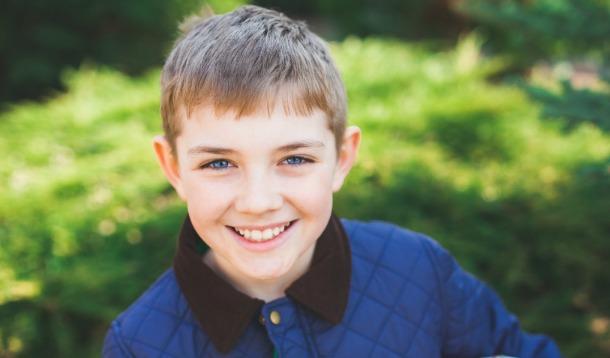
"We are in this class because we are not as smart as the other kids.”
Wrong, wrong, wrongy, wrong, wrong!
I love working with students with learning disabilities. It is one of my favourite roles as a teacher and I’ve been lucky enough to work with this population for many years.
It can be a tricky group to manage, a class stocked with very diverse needs, lots of different personalities and sometimes more than a few kids pretty disgruntled with the whole school system. And it can be a juggling act for the teacher, as a method that works well for one student with a learning disability is often ineffective for the next. I used to dream of finding that one perfectly successful method of teaching the struggling student, but, as with any other group, kids with learning disabilities comprise a diverse bunch and no single method works for all.
So, can these kids achieve success in life? Without the magic cure all, where are they headed?
Enter an assembly of successful entrepreneurs who have come out to say that, not only did they struggle with learning disabilities in school, but also that they view those disabilities as a gift.
Richard Branson, billionaire head of Virgin, recently made headlines sharing his struggles with learning disabilities and by encouraging other struggling students to turn their negatives into positives. Award-winning journalist, Anderson Cooper struggled with dyslexia at a young age. Three of the Shark Tank stars, Daymond John, Barbara Corcoran, and Kevin O’Leary, have all spoken publicly about their experiences with dyslexia. The founders of Ikea, Kinkos and JetBlue all have identifiable learning disabilities.
Other recognizable successes who endured learning struggles? Thomas Edison, Magic Johnson, Walt Disney, Albert Einstein, Hans Christian Anderson… the list goes on. Perhaps there is a link between learning disabilities and entrepreneurial spirit?
Now most of the kids in my classes wouldn’t agree that their challenges are a gift – just yet. School can be remarkably tough for kids with learning disabilities – especially before those learning differences are identified and understood by the teachers.
But here’s one thing I have noticed in my students: when there is a weakness in one part of the brain, it is countered by a strength (or many strengths) in other parts. I had one fabulous kid, who really struggled with reading, but had an astounding ability to recall information he received audibly. Is there such thing as a phonographic memory? If so, he had one! So many of my students show exceptional charisma, boundless creativity and impressive energy. I’ve had students who are whizzes at computers and media, incredible artists, amazing athletes, great at design and construction – obviously a student is so much more than their ability to manipulate letters or numbers.
And here’s one thing I have noticed about life. If you want to be great at something, it takes hard work. Short cuts will only get you so far. Time and effort really is the key to success. And that is something many kids with learning disabilities learn early. They need to put way more time and effort into either mastering the skills impacted by their disability, or learning how to work around those skills. Students with academic challenges usually understand the value of hard work long before their peers.
When I’m lucky enough to teach a group of young people with learning disabilities, we start the school year by discussing why they have been put into a “special” class. I’m always surprised by how many of my students do not know why they are in my room. Inevitably, one brave student will say something like, “We are not as smart as the other kids.”
And that’s where the learning about their abilities really kicks off. The very definition of learning disability insists that a student be average or above average intelligence. Do these kids have brains that work differently? Absolutely. Do they have a unique profile of strengths and needs? Definitely! Do they need teachers to find a method of teaching that works with their individual brain chemistry? Unquestionably! Are they less intelligent other kids? No way! In fact, I’ve worked with countless kids who have been identified as both gifted and learning disabled.
Depending on the age of my group, I often assign an early project around finding a person who struggled in school and went on to achieve greatness. There are so many inspirational stories and no limits as to what my students can achieve.
It seems, often the greatest limitations are the ones we put on ourselves. I love seeing so many successful people discuss their challenges. A learning disability is not something to be ashamed of; it’s a challenge to face head on and maybe even a gift of strength, resilience and creativity.
Image Source: kaboompics
![]() RELATED: This Mom and Son Train To Break Marathon Record Together
RELATED: This Mom and Son Train To Break Marathon Record Together